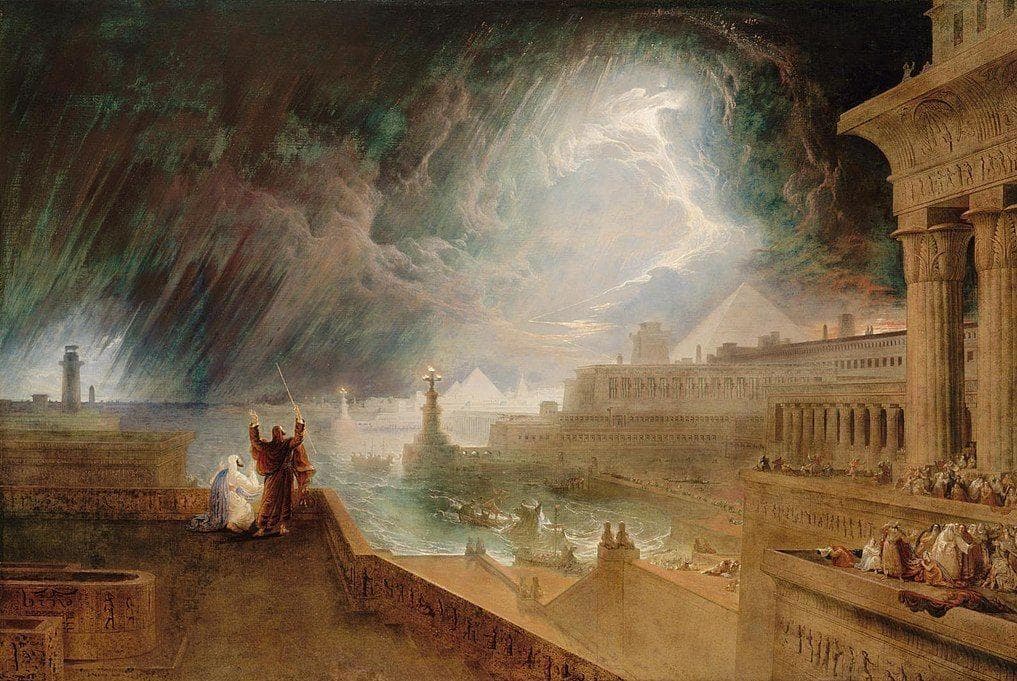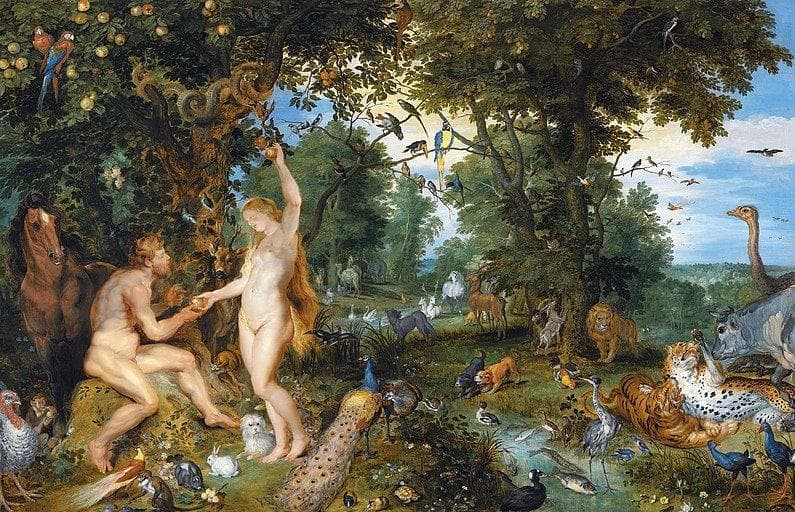-
(#12) God Helps Those Who Help Themselves
Though often widely mistaken for a Bible verse, this saying was actually popularized by Benjamin Franklin when he quoted it in Poor Richard's Almanac in 1757. The phrase apparently goes back even further, with its first known usage originating in a 1698 article called "Discourses Concerning Government" by Algernon Sydney.
Not only does the phrase never appear in the Bible however, it's actually contradicted by quite a few verses in which God is said to help the helpless, such as the Beatitudes, Isaiah 25:4, and Romans 5:6.
-
(#8) The Term "Immaculate Conception" Refers to Jesus's Virgin Birth
The two are actually separate things. The Virgin Birth refers to the fact that Jesus was conceived in Mary's womb without the presence of a human father. The Immaculate Conception refers to the idea that Mary was free of original sin when she was herself conceived. -
(#2) Satan Tempted Eve to Eat an Apple in the Garden of Eden
Though the imagery of Eve falling victim to the lure of the serpent and the tasty apple he enticed her to sample is almost universally familiar, the Bible never actually specifies that the fruit was an apple. In fact, Genesis 1:29 actually provides evidence that it certainly wasn't. In the passage, God specifies that it's cool for Adam and Eve to eat from any fruit that bears seeds.
Although the wily serpent behind Eve's downfall is often assumed to be the devil in disguise, the Bible never actually suggests this in any way, either. Many have read into the symbolisim, but for all we know it could've just been a super crafty snake who was randomly capable of speech.
-
(#5) Jesus Was Born in a Stable
Only two Biblical writers, Matthew and Luke, mention Jesus's birth and neither of them ever actually specify that he was born in a stable. All we really know is that when the time came for Mary to give birth, which for all we know could've been weeks after the couple actually arrived in Bethlehem, there was no room in "kataluma" - a word often translated to mean "inn," but which more likely means "guest room."
We do know Mary laid the baby Jesus in a manger, but in 1st century Judea mangers were everywhere. They could be found on the street, in the courtyards of larger homes, and even inside the first floors of some houses - where animals were sometimes brought inside at night for warmth.
-
(#14) Jesus Drank from the Holy Grail at the Last Supper
Although scripture does mention in passing that Jesus drank from a cup at the Last Supper, there is nothing at all to indicate that said cup was in any way holy or even remained in the possession of any of Jesus's followers.
Most of the lore attached to what would become known as the "Holy Grail" was invented as a plot device for use in the legends of King Arthur. The Grail's earliest recorded mention occurs in an unfinished romance entitled, "Perceval, the story of the Grail" by 12th Century French poet, Chrétien de Troyes. In its earliest forms however, the Grail was not a cup but a serving tray. Throughout the years it would also appear in other legendary incarnations ranging from a plate used to catch Christ's blood during the crucifixion to a precious stone that fell from the sky. -
(#13) This Too Shall Pass
Though popularly believed to be a Bible verse and sometimes argued to have originated with King Solomon, this phrase never actually appears in any translation of the Bible. Though we may never know for sure who first uttered the now famous phrase, one of the earliest recorded instances of its use goes back to a proverb recorded by the Medieval Persian Sufi poet, Attar of Nishapur.
The story tells of ancient Middle Eastern King who had such intense mood swings that he finally asked for the help of a group of wise men to help him get a grip and find balance. The wise men went away to ponder how they might best help the angsty king and when they returned they presented him with ring.
The ring, they explained, had a phrase engraved on it that would bring him happiness when he was sad and could even balance his times of extreme happiness with a little bit of sadness, thus keeping him at a sort of perpetual emotional middle ground. Upon examining the ring, the King found it engraved with the words "This Too Shall Pass."
New Random Displays Display All By Ranking
About This Tool
If you read and study the Old Testament and the New Testament carefully, in addition to the Psalms, more scriptures about truth appear in the New Testament. In particular, the apostle John uses the word "truth" extensively in John's Gospel. Christianity aims to make the world more aware of what the truth is and how the truth lives in the world. Truth is God's special revelation to mankind.
In the Bible, there are a lot of verses about truth. However, not all Christians live only according to the instructions of the Bible. They also get inspiration from other aspects of life. The random tool shares 15 Christian "truths" that are not from the Bible.
Our data comes from Ranker, If you want to participate in the ranking of items displayed on this page, please click here.















